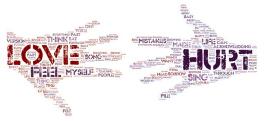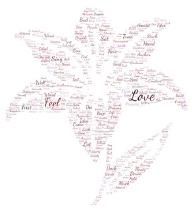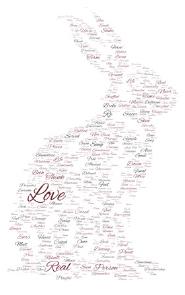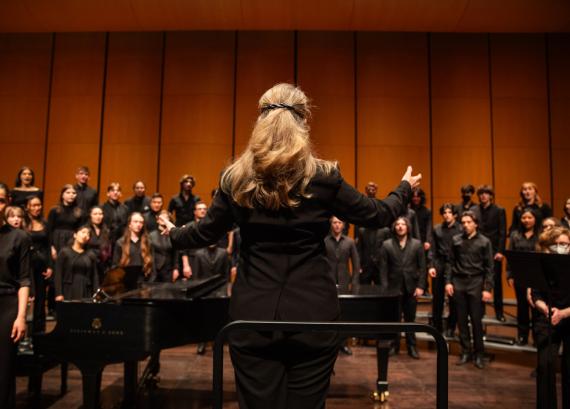The Chamber Singers (Geoffrey Boers, director) and University Chorale (Giselle Wyers, director) present their Winter Quarter program. The Chamber Singers presents a set of works celebrating precious and treasured things, including movements from Amex Berko’s Sacred Place, and music by Trent Reznor (Nine Inch Nails), Jake Runestad, Eric Whitacre, and others. With Rachel Lee Priday violin, Christine Lee, cello, and Serena Chin, piano,
Program
University Chorale
"The Loudest Whisper "
Giselle Wyers, conductor
David Puderbaugh, guest conductor
Serena Chin, collaborative pianist
Star in the East - Sacred Harp hymn Reginald Heber, arr. in the Southern Harmony
Solbonn - Norwegian folksong arr. Gjermund Larsen
Four Slovak Folksongs - Bela Bartok (mvts. 1 – 4)
David Puderbaugh, guest conductor; Serena Chin, piano
An Aboriginal Song - Veljo Tormis
David Puderbaugh, conductor; Serena Chin, shaman drum
Ain’t a That Good News - arr. Stacey Gibbs (contemporary)
Scarborough Fair - arr. Fraser Wilson (contemporary)
La Muerte Sonriente (The Smiling Death) - Diana Syrse
Percussion: Hannah Carpenter, Danny Vizenor, Jonah Ladish-Orlich, Serena Chin; Zachary Fitzgerald, solo tenor
Chamber Singers
"Sacred Place and Sacred Places"
Geoffrey Boers, conductor
Serena Chin, collaborative keyboard artist
Ingrid Veruhlsdonk, collaborative rehearsal keyboard artist
Rachel Priday, violin
Christine Lee, cello
Clara Johnson, Evan Norberg, and Michael McKenzie assistant conductors
Sacred Nature
Sacred Place: Mvt. 1 Amidah: Alex Berko
Come to the Woods: Jake Runestad
Sacred Life
Sacred Place: Mvt. 3 Shema: Alex Berkop
Kyla Jean Marshall, soprano
Braeden Schwarz, tenor
Beauty is Life: Jake Runestad
Sacred Love: Healing and Renewa
Sacred Place: Mvt. 4 Mi Shebeirach
Hurt: Trent Reznor, arr. Eric Whitacre
Jaden Ritscher, soprano
I Sing Because… Will Todd
Real: James Deignan
Michael McKenzie, conductor
University Chorale Notes and Text
Star in the East Sacred Harp hymn, composed Reginald Heber, arr. in the Southern Harmony, 1835
- Hail the blest morn, see the great Mediator, Down from the regions of glory descend! Shepherds, go worship the Babe in the manger, Lo, for His guard the bright angels attend.
Refrain: Brightest and best of the sons of the morning! Dawn on our darkness, and lend us Thine aid; Star in the east, the horizon adorning, Guide where our Infant Redeemer was laid.
- Cold on His cradle the dewdrops are shining, Low lies His head with the beasts of the stall; Angels adore Him, with slumbers reclining, Maker, Redeemer, and Savior of all.
- Say, shall we yield Him some costly devotion, Odors of Eden, and off’rings divine? Gems from the mountain, and pearls from the ocean, Myrrh from the forest, and gold from the mine?
- Vainly we offer each ample oblation, Vainly with gold would His favor secure; Richer by far is the heart’s adoration, Dearer to God are the prayers of the poor.
Solbonn- Norwegian folksong, arr. Gjermund Larsen
Sung in Norwegian, lyrics drawn from a Norwegian traditional lullaby
Lova, lova, lina.
Lord let the sun shine.
Upon the hills and trees.
Upon people and herds.
Upon fields and meadows.
Upon Virgin Mary’s red golden bed.
Solos: Jessica Thaxton, fiddle and Meliza Redulla and Sophie Root, sopranos
Four Slovak Folksongs by Bela Bartok (1881-1945)
Conducted by guest conductor Dr. David Puderbaugh
Serena Chin, piano
Text, sung in Hungarian:
Movement 1:
The mother wed, wed the daughter far away from herself.
She forbid her, she ordered her, don’t go towards me, daughter.
Daughter: I will make myself to be a mottled bird.
I will fly to my mother and sit there on a garden lily.
Mom comes out and says: What’s this bird who sings so sadly?
Hey, hey, mottled bird, go to foreign country. Don’t break the lily!
Daughter: You wed me to a bad man, to a foreign country.
Truly I feel bad, dear mother, for being with a bad man.
Movement 2:
On the mountain, I had such a good sleep, as on an eider down.
We have gathered the hay already.
What are we going to do? We go down from the hill to the valley.
Movement 3:
She drank with joy.
She ate with joy.
She danced with joy.
Her little skirt, she did not even crinkle it.
You did not give four coppers, as I did, so that you can dance.
No one was willing to dance with me!
Movement 4:
Let the bagpipe blow
We go to our sweetheart!
Hey, let it blow merrily, Hey, sure, we’ll go there!
Blow your bagpipe! I still have two coppers; Hey, one for the piper, the other for the innkeeper. He was quite a goat, that led the flock! Hey, but he doesn’t lead anymore. Hey, he broke his leg!
An Aboriginal Song Veljo Tormis (1930-2017)
David Puderbaugh, conductor
Serena Chin, shaman drum
The text is sung to a single word “Tabu” (which translates as “taboo”)
Ain’t a That Good News arr. Stacey Gibbs (contemporary)
I got a crown up in a the kingdom, Ain’t a that good news
I’m a gonna lay down this world,
Gonna shoulder up-a my cross;
Then I’m gonna take it home to my Jesus, ain’t a that-a good news.
I got a Savior in-a the kingdom, Ain’t a that good news
I’m a gonna lay down this world,
Gonna shoulder up-a my cross;
Then I’m gonna take it home to my Jesus, ain’t a that-a good news.
I got a harp up in a the kingdom, Ain’t a that good news
I’m a gonna lay down this world,
Gonna shoulder up-a my cross;
Then I’m gonna take it home to my Jesus, ain’t a that-a good news.
Lord I’m gonna shout for joy, ain’t a that a good news?
Scarborough Fair arr. Fraser Wilson (contemporary)
Are you going to Scarborough Fair?
Parsley, sage, rosemary and thyme.
Remember me to one who lives there.
She once was a true love of mine.
Ask her to make me a cambric shirt,
Parsley, sage, rosemary and thyme.
Without any seam nor needlework,
She once was a true love of mine.
Tell him to find me an acre of land,
Parsley, sage, rosemary and thyme.
Between the salt water and the sea sand,
He once was a true love of mine.
La Muerte Sonriente (The Smiling Death): composed Diana Syrse (b. 1984)
Percussion: Hannah Carpenter, Danny Vizenor, Jonah Ladish-Orlich, Serena Chin
Zachary Fitzgerald, solo tenor
Translation: Sung in Spanish
The smiling death
is dressed by memories that are ornamented
by flowers made of fabric Body of bones
fine and slender.
The white death of perfect bones
is waiting to be liberated
from flesh, blood, pulse and breath.
The cheerful death
dresses in an elegant way because she is going to meet life itself.
The joyful death
remains behind each smile and behind every lost love that goes to different skies depending on their faith.
Our deaths
that sometime
beaten in our dimension walk among us silently.
Sacred death,
a death dreamed by us smiling death
the death that sings, flirtatious death, unexpected death
the death that crumbles the bones of the soul.
The smiling death walk between offerings and watches her silent in colored.
One night every year
skulls dance
eat, laugh and sing
and we dance elbow by elbow following the beat of nostalgy of Mexican music
In here the cacao grows
between dances and percussions. Over there the sugar
between flutes and flowers.
The smiling death laughs and dances cold death,
white death.
smiling death
the death that sings, flirtatious death, unexpected death
the death that crumbles the bones of the soul.
Because death between bread
and chocolate
is not an absence of life
it is a skull made of white sugar,
it is a skinny with a hat between orange flowers that lay
on her beloved cemetery.
Notes from Geoffrey Boers
Tonight’s Chamber Singers portion of The Loudest Whisper, is an exploration that things, just by being, speak “loudly” to us, at times with no sound at all. Nature, Life, Love are wonders that we might deem as “sacred,” precious, treasured.
The concert centers around, and was inspired by a new work by Alex Berko entitled Sacred Place. Inspired by a Jewish service, the six-movement work, (three of which we will sing tonight), is not sacred in a religious sense. Rather, it is a collection of poems and writings by Wendell Berry, John Muir,William Stafford, and a short snippet of the Mi Shebeirach which is a Jewish blessing for health and healing.
The three movements we will sing tonight are surrounded by other works that celebrate the same “sacredness” of the Berko work. We will hear more of John Muir in Runestad’s Come to the Woods, a story of Muir’s desire to go into the woods to experience a “most amazing windstorm.” The choir paints pictures of wind, a storm, the calming, and the after-quiet. The choir will sing “Beauty is life when life unveils her holy face” as an uplifitng chant in th Runestad’s setting of Kahlil Gibran.
In singing about love, we sing a challenging set of three songs which explore the inevitable hurt that occurs in relationship, the act of forgiveness, and the process of healing. Hurt was written by Trent Reznor of the band Nine Inch Nails and later infamously covered by Johnny Cash. It speaks of regret and deep honesty of a life of creating hurt, and asking to be loved again. We follow with I Sing Because…which says over and over “I sing because you loved me once,” and it seems the singer says that love is enough to endure a lifetime—forgiveness indeed. We close with Real, with a text from The Velveteen Rabbit:
“Real isn’t how you are made,” said the Skin Horse. “It’s a thing
that happens to you when someone loves you, for a long, long, time.
Not just to play with, but REALLY loves you. Then you become
real.
We found these final pieces to be both challenging and fulfilling after the intense journey of this program. Our need to process the rich, but profoundly sad and emotional text of Hurt, led us to create “Word Clouds,” AI generated pictures made from words that our choir members shared—both from the text we are singing as well as elements from their own lives. What follows here are three Word Clouds for, in order, Hurt, I Sing Because, and Real.



University ChoraleSopranos Altos Tenors Basses Chamber SingersSoprano 1 Soprano 2 Alto 1 Alto 2 Tenor 1 Tenor 2 Bass 1 Bass 2 |
